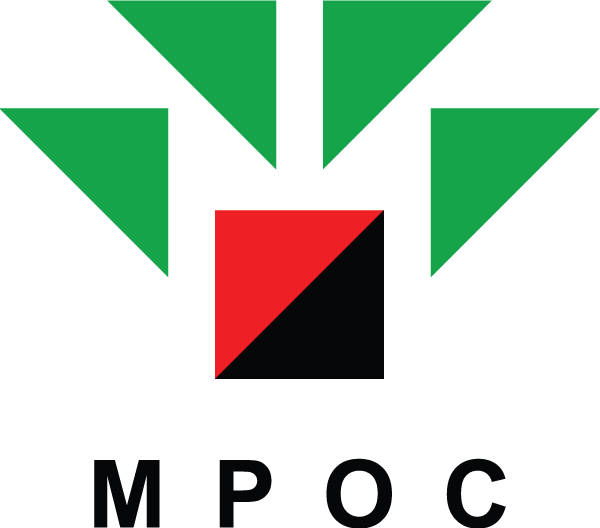Archive
2022
28 Mar - 01 Apr 2022
ASSESSING 2022: MANAGING OPPORTUNITIES AND RISKS
14 - 18 Nov 2022
MITIGATING THE NEXT WAVE OF MARKET UNCERTAINTIES
2021
05 - 11 Apr 2021
Section 1: Price Direction
•
05 - 11 Apr 2021
Section 2 : Special Focus on the US
18 - 24 Oct 2021
Section 1: Oils & Fats Supply, Demand and Outlook
18 - 24 Oct 2021
Section 2: Opportunities for Palm Oil in Asian Market
2020
24 Feb - 01 Mar 2020
Section 1 : CPO Price Trend
24 Feb - 01 Mar 2020
Section 2: Global Palm Oil Market Opportunities
22 - 28 Jun 2020
POINTERS ON THE PRICE TRENDS
2019
18 - 24 Feb 2019
Section 1: CPO Price Trend
25 - 24 Feb 2019
Special Focus - India
19 - 25 Aug 2019
Section 1 : CPO Price Trend
19 - 25 Aug 2019
Section 2: Special Focus
2018
29 Jan - 04 Feb 2018
Section 1: CPO Price Trend
29 Jan - 04 Feb 2018
Section 2 : Global Palm Oil Market Focus
06 - 12 Aug 2018
Section 1: CPO Price Trend
06 - 12 Aug 2018
Section 2: Global Palm Oil Market Focus
2017
20 - 26 Feb 2017
Section 1: Price Directions
20 - 26 Feb 2017
Section 2: Market Challenges and Opportunities
21 - 27 Aug 2017
Section 1: Palm Oil Price Fundamentals
21 - 27 Aug 2017
Section 2: Regional Focus : CIS Countries
2016
22 - 29 Feb 2016
2016 Market Direction - Twists and Turns of Palm Oil Prices
22 - 28 Aug 2016
Section 1 : Palm Oil Price Fundamentals
22 - 28 Aug 2016
Section 2 : Trade Issues and Market Prospects
•
Indonesia's Palm Oil Industry - Insight into Indonesia's Export Tax Policies, Palm Oil Fund and Its Impacts
2015
23 Feb - 01 Mar 2015
Opportunities, Challenges And Trend In 2015 CPO Price
17 - 23 Aug 2015
Second Half 2015 - Anticipating Market Price Direction
17 - 23 Aug 2015
Special Focus: Indian Sub-Continent
2014
17 - 24 Feb 2014
Anticipating 2014 Palm Oil Price Direction
25 - 31 Aug 2014
2nd Half 2014: Market Challenges, Predictions And Directions
2013
18 - 27 Feb 2013
Mapping The Palm Oil Price - 2013 Market Perspective
22 - 29 Jul 2013
Prospects For Second Half Of 2013 - Managing Price Fluctuations
2012
13 - 20 Feb 2012
2012 Price Direction, Issues & Challenges
•
06 - 17 Aug 2012
Palm Oil : Challenges, Opportunities And Latest Market Directions
2011
07 - 17 Feb 2011
Challenges, Opportunities And Price Direction
08 - 16 Aug 2011
Challenges, Opportunities And Latest Price Trend
2010
02 - 08 Aug 2010
2010 Year End Prospects - What Lies Ahead?
Login
Error
Reset Password

Error
Register

Error

POINTERS
LOGIN /
REGISTER




ORGANIZED BY:

Section 2 : Trade Issues and Market Prospects:
Indonesia's Palm Oil Industry - Insight into Indonesia's Export Tax Policies, Palm Oil Fund and Its Impacts

Mr. Togar Sitanggang
Mr Togar Sitanggang is the Vice Chairman of Indonesian Palm Oil Association/ GAPKI Since April 2018, Previously He served as Secretary General from April 2015 to April 2018.
Currently, Mr Sitanggang works for PT Musim Mas as General Manager base in Jakarta. He has been in palm oil industries for almost 30 years with national and multinational companies including PT SMART Tbk, Cargill, Bunge, ED & F Man, Darmex in many positions ranging from research, logistics, trading and now corporate affairs.
Mr Sitanggang is also active in palm oil related associations in Indonesia such as APROBI (Association of Biofuels Producers Indonesia), APOLIN (Association of Oleochemicals Manufacturer) and DMSI (Dewan Minyak Sawit Indonesia – Indonesia Palm Oil Board).
Mr. Togar Sitanggang, was born in North Sumatera in 1966, graduated from University of Southern California, Los Angeles, USA, in Computer Science degree and obtained his Master Degree from North Sumatra University in Medan.
VIEW PROFILE
From four seeds brought to Indonesia in 1848, Indonesia is now the leading producer of Palm Oil in the world with major development of oil palm plantation started in 1980s. Since then palm oil production increases year by year and stand at approximately 32 million mt this year, the largest producer of palm oil in the world. The “spirit” of export tax has started in 1994. The purpose of export tax is to make sure local demand secured and prices of cooking oil does not go too high. This reached peak in Jan-April 1998 when government ban export palm oil due to scarcity in local cooking oil. However, as the production increases the need to secure local demand was no longer the main objective of the export tax but more as an instrument to control local prices. And in 2011 the export tax main objective shifted to support the downstream industries where export tax for refined or products are “cheaper” compare to Crude Palm Oil. The change drove the downstream industries development in many ways including increase of refined capacity and development of further downstream such as Oleochemicals and Biodiesels.
Portion of Indonesia export also shifted from Crude base to Product base and currently stand at 25% Crude and 75% products. Latest development of export tax was the introduction of Palm Oil Levy in July 2015 and the change of export tax from ad valorem base to specific base. Latest Indonesia export tax tariffs are in specific values, not by calculation. The Levy collection is to support development of palm oil industries in Indonesia including replanting program, research, biodiesel, etc. Biodiesel is to support the Government Program on Mandatory used of Biofuels and in the way to create new demand for palm oil in Indonesia and the world. The levy program so far has shown good impact to the market where at least it created new demand and hence hold the price to further declined. There are also concerns about the sustainability of the program since price different between Crude Oil and Palm Oil still very high and the fund would not be sufficient to support the programs. To answer this, multi stakeholders are now in discussion on finding ways to make sure the fund is enough until end of 2016 and further to 2017 and the future. This paper will explain in detail the impacts of Indonesian palm oil export tax and fund on the industry.
Portion of Indonesia export also shifted from Crude base to Product base and currently stand at 25% Crude and 75% products. Latest development of export tax was the introduction of Palm Oil Levy in July 2015 and the change of export tax from ad valorem base to specific base. Latest Indonesia export tax tariffs are in specific values, not by calculation. The Levy collection is to support development of palm oil industries in Indonesia including replanting program, research, biodiesel, etc. Biodiesel is to support the Government Program on Mandatory used of Biofuels and in the way to create new demand for palm oil in Indonesia and the world. The levy program so far has shown good impact to the market where at least it created new demand and hence hold the price to further declined. There are also concerns about the sustainability of the program since price different between Crude Oil and Palm Oil still very high and the fund would not be sufficient to support the programs. To answer this, multi stakeholders are now in discussion on finding ways to make sure the fund is enough until end of 2016 and further to 2017 and the future. This paper will explain in detail the impacts of Indonesian palm oil export tax and fund on the industry.
REGISTER OR LOGIN TO VIEW FULL REPORT
REGISTER OR LOGIN TO VIEW PRESENTATION SLIDES
Questions & Answers
Please login to post comments.
Facebook SDK returned an error: